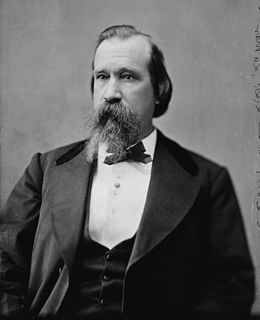A Quote by John Marshall
When a law is in its nature a contract, when absolute rights have vested under that contract, a repeal of the law cannot divest those rights. The people can act only by their agents and, within the powers conferred upon them, their acts must be considered as the acts of the people.
Related Quotes
[Before the Civil Rights Act of 1964], many governments in southern states forced people to segregate by race. Civil rights advocates fought to repeal these state laws, but failed. So they appealed to the federal government, which responded with the Civil Rights Act of 1964. But this federal law didn't simply repeal state laws compelling segregation. It also prohibited voluntary segregation. What had been mandatory became forbidden. Neither before nor after the Civil Rights Act were people free to make their own decisions about who they associated with.
The error seems not sufficiently eradicated, that the operations of the mind, as well as the acts of the body, are subject to the coercion of the laws. But our rulers can have authority over such natural rights only as we have submitted to them. The rights of conscience we never submitted, we could not submit. We are answerable for them to our God. The legitimate powers of government extend to such acts only as are injurious to others.
Opposition can be useful. Every opposition movement is good and useful if it acts within the law... If there are people who act outside the law, then the state must use legal means to impose law in the interests of the majority. That's the way it's done in the U.S. and that's the way it's done in Russia.
My basic approach is to recognize that mainstream legal theories of contract have been muddied by unlibertarian and positivistic conceptions of law and rights. Questions about what rights are "alienable" or not, loose talk about how promises should be "binding," etc., highlight the need for clarity in this area. In my view, to sort these issues out one needs a very clear and consistent understanding of the nature of property rights and ownership.
The courts are run on COMMERCIAL CONTRACT LAW and that is has NOTHING to do with any IN-LAW procedures whatsoever. So the nature of the game is to OBTAIN a CONTRACT with your OPPONENT (Adversary) so that the court can acknowledge and RATIFY the contract and SETTLE and CLOSE the case and move on and if you understand that EVERYTHING in there is happening by way of CONTRACTS instead of trying to get the truth out then MAYBE you'll get the truth to prevail by following the CORRECT procedure to get them to acknowledge the truth by CONTRACTUAL CONSENT.
Thus these three amendments to the Constitution [13th, 14th, 15th] were ratified while the ten Southern states were under martial law, and "had no law at all." The Force Acts, the four Reconstruction Acts, and the Civil Rights Act were all passed by Congress while the Southern states were not allowed to hold free elections, and all voters were under close supervision by federal troops. Even Soviet Russia has never staged such mockeries of the election procedures.
There are those who argue that the concept of human rights is not applicable to all cultures. We in the National League for Democracy believe that human rights are of universal relevance. But even those who do not believe in human rights must certainly agree that the rule of law is most important. Without the rule of law there can be no peace.
US law and international human rights law have radically diverged in the past years in terms of the recognition of indigenous people's rights. International human rights law now looks at not whether or not the tribes have formal ownership or legal title in a Western legal conception might have it, but rather they look at the tribe's historical connection to that land.































